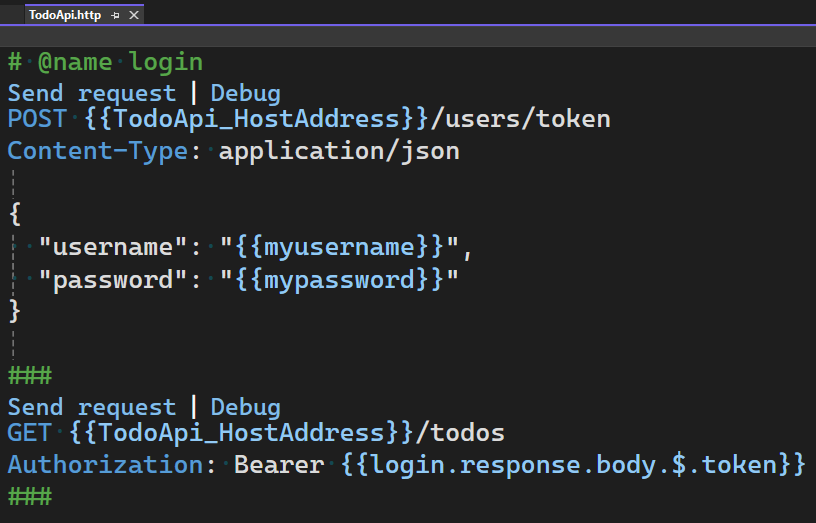HTTP File updates for Request Variables and more

-
Request Variables: This feature allows you to extract values from the response or request of an HTTP request and use it in subsequent requests. For example, you can extract a token from a login request and use it in another request for authentication.
-
Shared Environment ($shared): Shared environment variables enable you to define variables that can be used across different environments, making it easier to manage and reuse values like base URLs or authentication tokens.
-
HTTP Environment File: You can define multiple environments in an HTTP environment file, such as development (dev) and production (prod), as well as a shared environment ($shared) for variables that are common across environments.
-
Example Request with Request Variables: Demonstrates how to use Request Variables to extract a token from a response and pass it as a header in a subsequent request to update an item using PUT method.
-
Example Request with Shared Environment: Shows how to define and use variables from an HTTP environment file in a request sent to httpbin.org, with the response echoing the headers sent in the request.
-
Conclusion: The post introduces Request Variables and Shared Environment features in HTTP files, providing flexibility and reusability for managing variables and making requests to APIs. These features enhance the functionality and efficiency of working with HTTP requests.